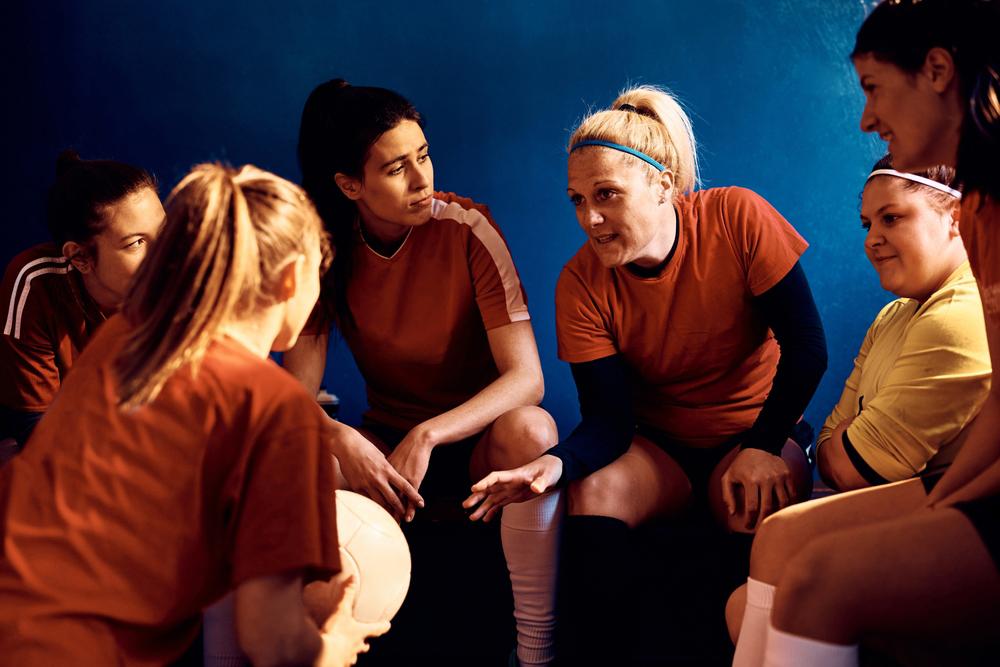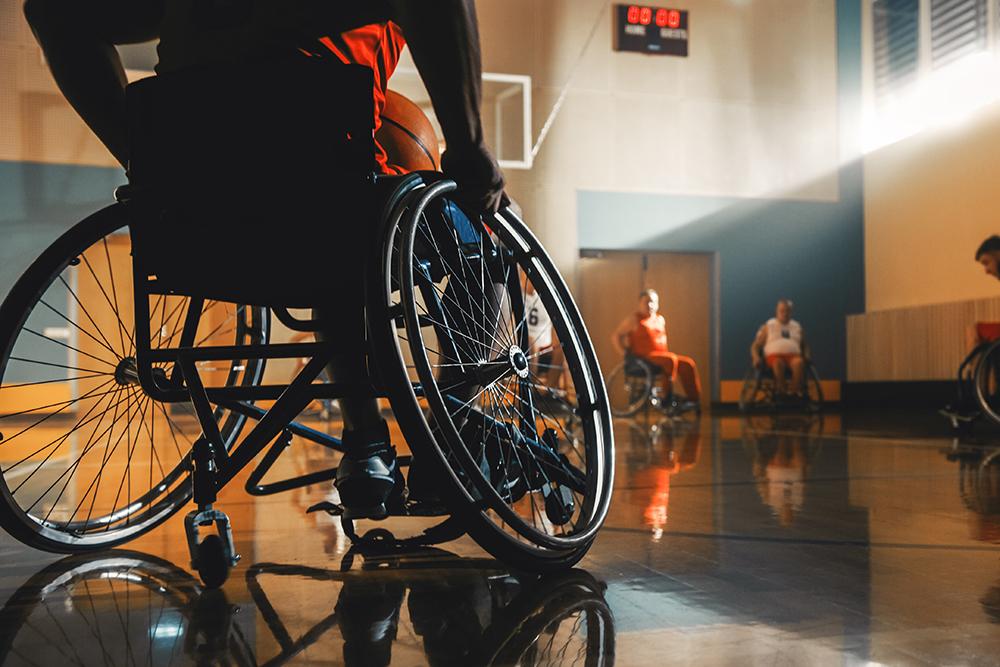 Team drama is nearly inevitable for young athletes. Whether your athlete is navigating an interpersonal issue with one teammate or dealing with a team that’s divided by cliques, you can help give your athlete the space and the tools that they need to effectively talk things out.
Team drama is nearly inevitable for young athletes. Whether your athlete is navigating an interpersonal issue with one teammate or dealing with a team that’s divided by cliques, you can help give your athlete the space and the tools that they need to effectively talk things out.
Here, TrueSport Expert Nadia Kyba, MSW, President of Now What Facilitation, offers strategies for building strong communication skills that will serve your athletes in sport and throughout their lives.
Be aware of polarization
One of the most common issues facing young people today is polarization, says Kyba. This is the idea that there are only two sides to every issue, and everyone who’s on the “other” side is immediately wrong. But rarely are things truly binary, she says.
“As caregivers, our job is to teach our athletes that we don’t automatically write off people because of their beliefs,” she says. “Instead, we try to get curious about where their beliefs are coming from, and often, that understanding can also help us better address the issues that the other person is working through.” Kyba also suggests starting with the assumption that people generally have positive intent.
Be curious about the situation
 As your athlete relays a situation on the team to you, ask questions without judgement. This can be difficult as a parent who naturally wants to problem-solve and share your words of wisdom with your athletes, especially when it comes to things like disagreements with teammates that remind you of your own days in sport! But rather than responding to your athlete with advice or statements, ask more questions. Even simply repeating what your athlete told you, as you understand it, and then asking them to elaborate, can help your athlete actually think through a situation in a more meaningful way.
As your athlete relays a situation on the team to you, ask questions without judgement. This can be difficult as a parent who naturally wants to problem-solve and share your words of wisdom with your athletes, especially when it comes to things like disagreements with teammates that remind you of your own days in sport! But rather than responding to your athlete with advice or statements, ask more questions. Even simply repeating what your athlete told you, as you understand it, and then asking them to elaborate, can help your athlete actually think through a situation in a more meaningful way.
Kyba suggests using this script: “I heard you say ‘[repeat back their story in your own words]’. I am feeling confused. Can you help me to understand what you mean?”
Check in on your own biases
As you help your athlete work through their team dramas, arguments, and issues, constantly check in with yourself and ask where your own biases lie. “Maybe when you played a sport in high school, you felt like the coach benched you far too often and it was really unfair,” says Kyba. “Now, when your athlete talks about being benched midway through the game, your own past experiences are shaping how you hear that story.” You may be creating connections that don’t exist: Maybe another player outperformed your athlete in practice, or your athlete was late for the game and sitting a period out is one of the coach’s rules for dealing with lateness.
You can use your experiences to empathize with your athlete and share a story of when you had a similar problem or feeling, but don’t assume that your experiences are a direct mirror.
Help your athlete set up conversations—don’t have them for your athlete
Finally, it’s important to help your athlete learn to have difficult conversations. This could mean role-playing as the coach or teammate as your athlete practices a conversation about playing time, or acting as a teammate as your athlete works through an argument. Kyba notes that as caregivers, our tendency is to step in and help when our athletes are struggling, but they’ll learn more and gain more respect from their coach and teammates if they’re able to advocate for themselves. You can help them hone their argument or speech but allow them to deliver it.
_____________________
Takeaway
As a caregiver, your athlete will almost certainly come to you for help dealing with some kind of drama on their team, whether it’s an issue around playing time or simply a personal argument with a teammate. When this happens, it’s helpful to ask questions about the situation, using your own experiences to empathize rather than advise. Help your athlete assume positive intent and create a ‘script’ to deal with the situation on their own as often as possible.



